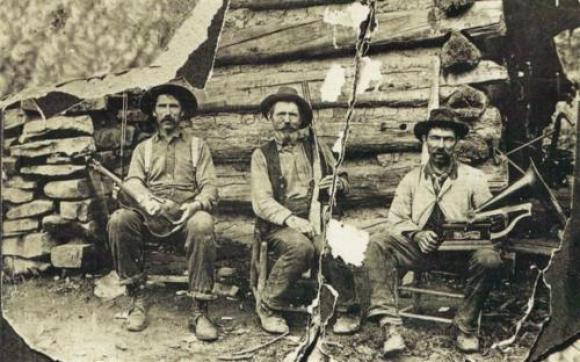About ten years ago, one of my colleagues suggested to me that Americans listen to music differently than people from around the globe. According to his way of thinking, Americans favor lyrics and beat exclusively to all other aspects of music, and ignore things like harmonic structure (what some people might call chord changes), melody, dynamics, instrumentation, song-form structure (verses, refrains, and bridges), and emotional interpretation. His point was that the Japanese, for example, favor all those other things in their musical choices, and they prefer American jazz a lot. Americans typically don’t even understand their own jazz anymore, because they’re too focused on the lyrics, which is a missing ingredient in most jazz.
As a college music professor, I agree with an awful lot of what he said. However, my only disagreement in his premise is that Southerners actually DO still favor jazz, because we still appreciate melody, mood, and song-form structure in our own music, which goes a long way towards explaining yet another reason why Southerners tend to make better overall musicians and more well-rounded music consumers. All of the musical genres associated with the South (bluegrass, blues, jazz, rock, country, etc.), depend on a keen interpretation of melody, harmony, dynamics, and form, and Southerners are raised to appreciate those things in all music. What’s more, I think Southerners are better at “crossing over” into various musical styles, because we were raised that way. As I mentioned in another Abbeville blog about Muscle Shoals, the legendary Swampers were famous for their ability to swerve back and forth between rock, country, soul, and gospel, and it all boiled down to the fact that they grew up playing and appreciating ALL of those genres of music. It only makes sense that they were so good at all of them.
It also goes a long way towards explaining the differences between popular music favored in the South and popular music favored elsewhere. Outside the South, music fans and consumers tend to focus on lyrics, production value, and the overall gimmicky/trendy aspects of music. Southerners tend to focus on the feel. Forget the show business – does it have heart? It really is that simple.
On a personal note, this is also what makes me difficult to tolerate in a social setting, because there’s always music playing everywhere we go. For her own sanity and self-preservation, my wife has developed the skill of blocking out most of what I say, but our friends are not that fortunate. The background music at Applebee’s is not in the background to me, and it bears frequent commentary as far as I’m concerned. So, while everybody else is focused on who’s getting a raise, who’s getting fired, and who’s getting divorced, I keep pointing out that the chords for Journey’s “Don’t Stop Believing” and Adele’s “Someone Like You” are exactly the same. Or that Bobby Gentry’s “Ode to Billie Joe” is in an extended yet authentic 12-bar blues form. Or that the verse, refrain, and bridge construction of Otis Redding’s “Dock of the Bay” and George Harrison’s “Here Comes the Sun,” are also exactly the same. Or that the three-chord riff that begins “Smoke On the Water” is the same three-chord riff that ends “Free Bird.” You get the point.
The finals of American Idol Season XIII are upon us, and I’m very interested from a musicology standpoint as to how the voting will pan out. Of the finalists, we have a battle between a Southerner from North Carolina and a Yankee from Michigan. The Yankee features glam, glitter, glo-sticks, show biz, quirky pronunciations, and trendy fashion, and she focuses on the look and the lyrics. The Southerner features soul and heart, and he focuses on the melody and the raw emotion of the moment. My prediction is that the Yankee will win. Not because she’s the best singer, but because my colleague was right all those years ago.







